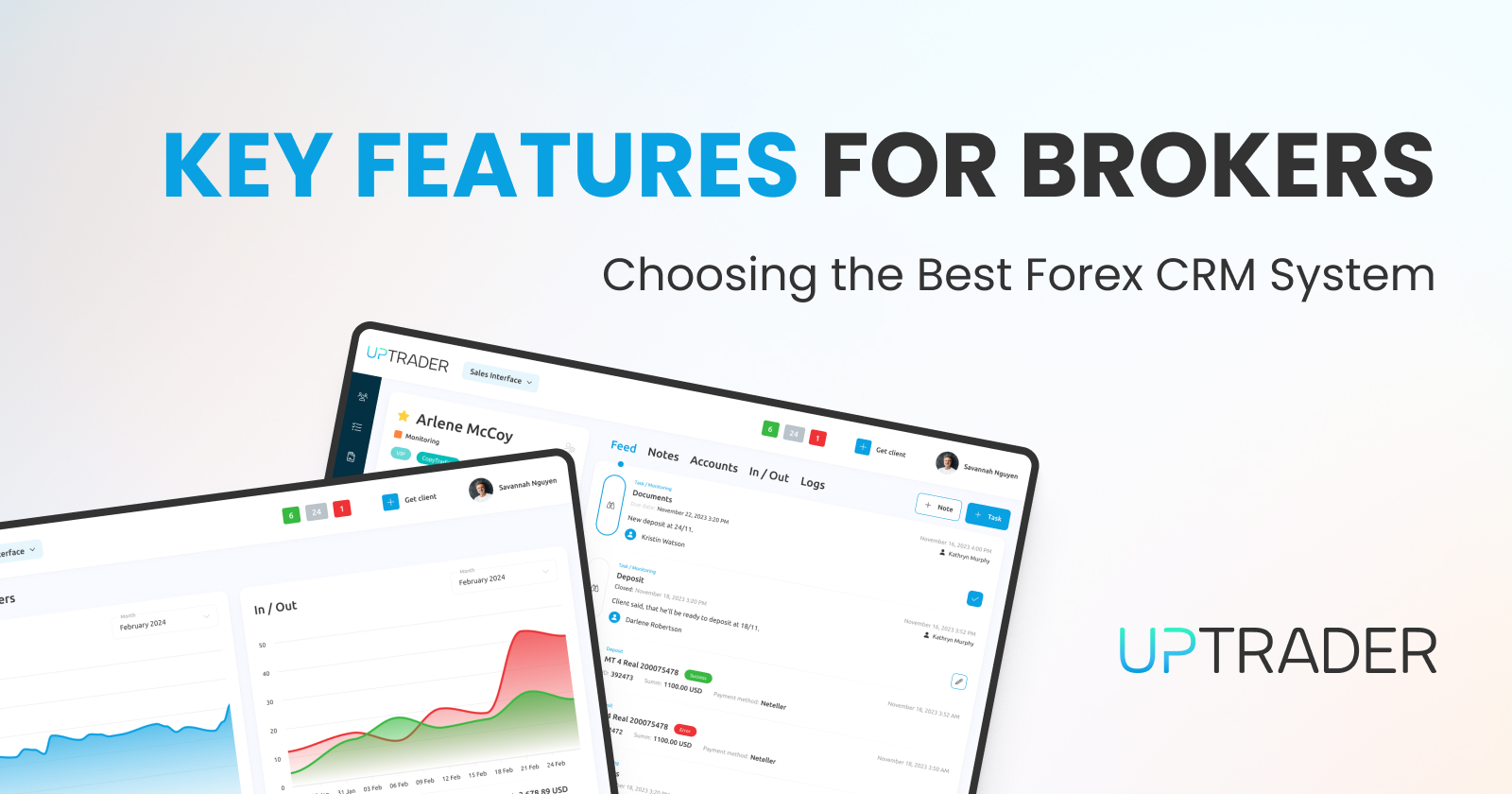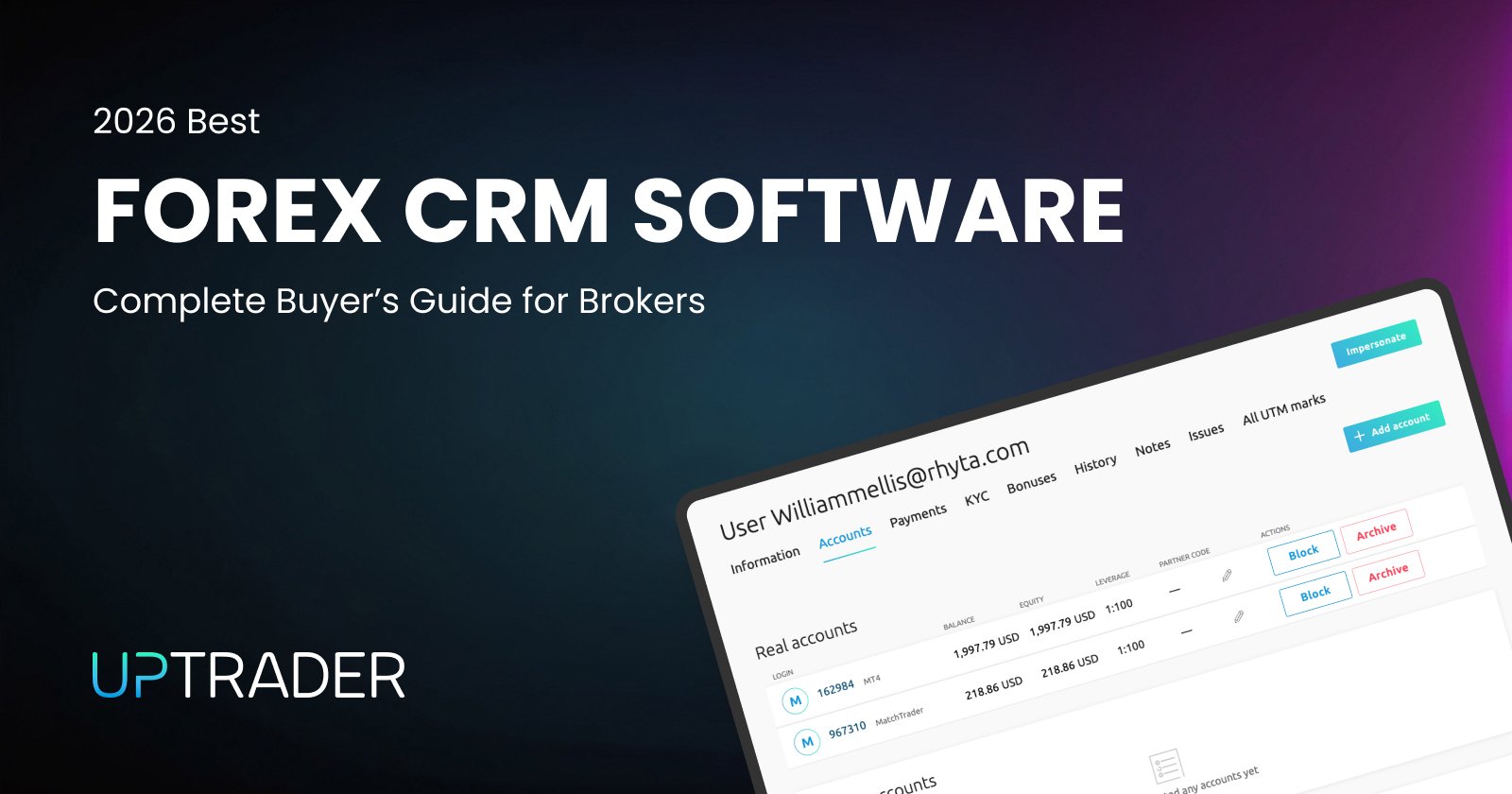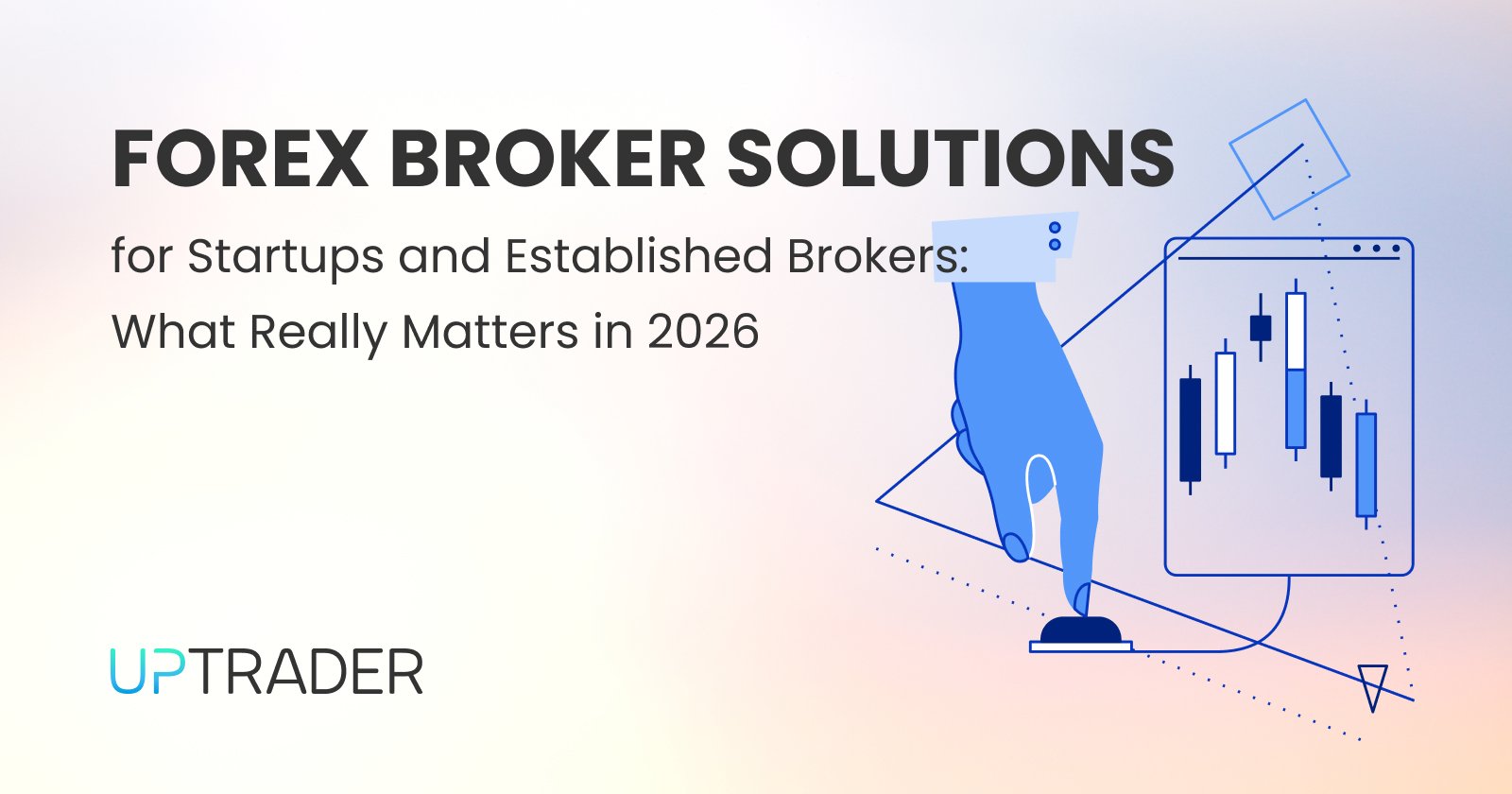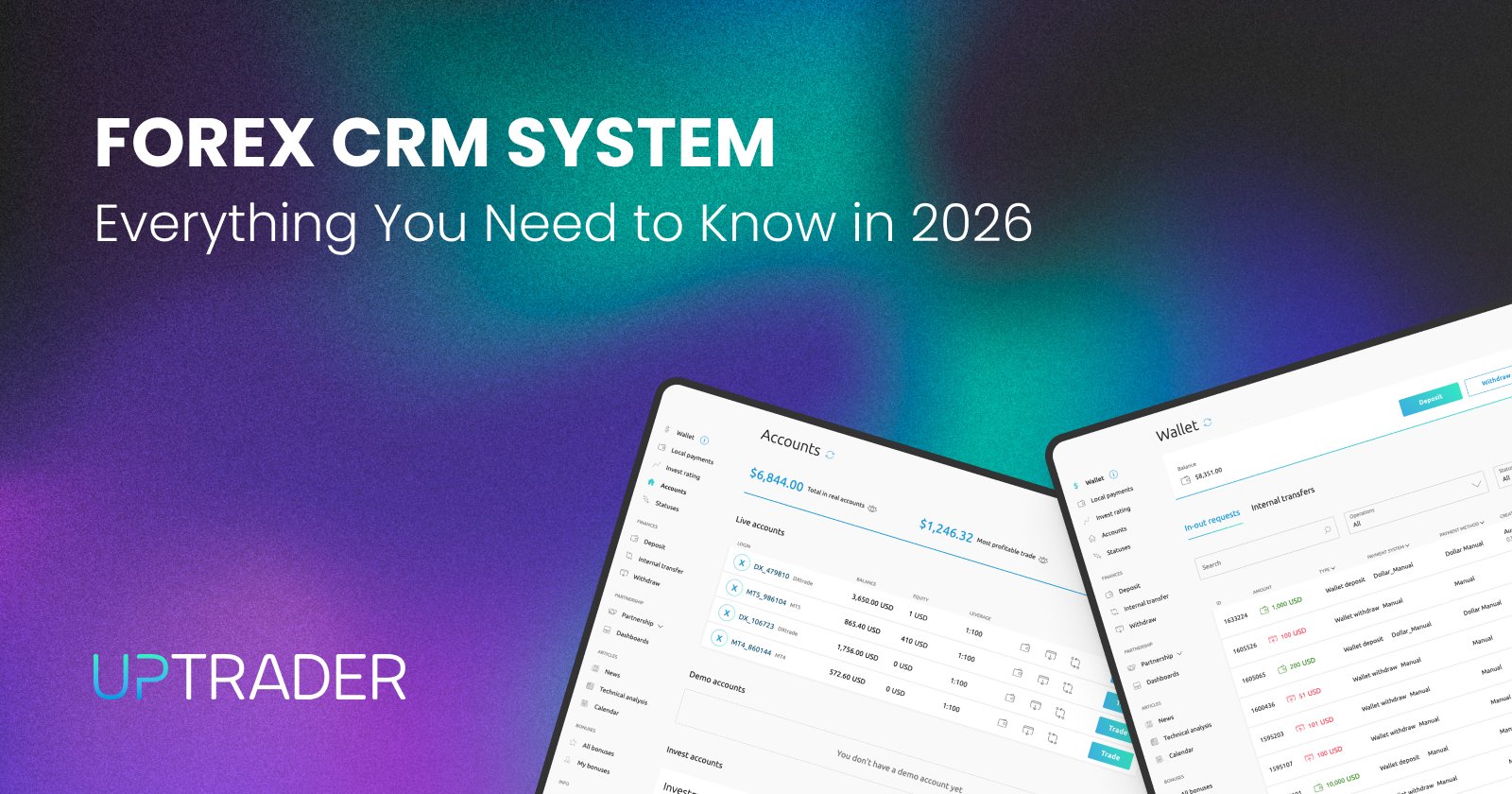Choosing the Best Forex CRM System: Key Features for Brokers

Share this publication:
In the fast-paced and competitive world of Forex trading, brokers have to have proper means of carrying out their functions, ensuring client retention, and facilitating daily activities. One of the fundamental instruments is the CRM (Customer relationship management) system purposefully developed for use by Forex brokers. The Forex CRM system provides the brokers with the means of managing their clients and enhances the brokers’ operations, regulatory assistance, and marketing performance. In this article, we will outline the functional must-haves of a CRM system for Forex brokers.
What is a Forex CRM System?
A Forex CRM system can be defined as a dedicated system created specifically for Forex brokers as well as clients. Unlike other industries where traditional CRM systems are in use, a Forex CRM system connects the trading systems to the customer management services and integrates the sales and marketing processes including compliance and reporting aspects specific to Forex. The system is the heart of all operations of a broker facilitating customer engagement, tracking of trades, processing of funds, and meeting regulatory requirements.
With a Forex CRM system, the client-handling capabilities of the brokers are enhanced and the level of service offered improves which ultimately contributes to the profitability of the brokers.
However, given the plethora of choices in the market, how do you select the perfect Forex CRM? Let us consider the vital components and features.
1. Integration with Trading Platforms
The ability to connect easily with application software such as Trading Platform 4 (MT4) or cTrader is arguably one of the most important features that Forex CRM software should possess. Efficient delivery of service requires that the brokers possess real-time information on the client's trades, trade positions, balances, and performance statistics. A proper system of Forex CRM should extract this information from the trading systems, and show it in a manner that is convenient to summarize, make decisions, or take actions.
In addition, integration ability with a trading platform means that the brokers are also able to keep track of all the clients’ activities and even assist them with inquiries based on their trade history and other details.
Key Questions to Ask:
- Does the CRM support integration with multiple trading platforms?
- Is the data synchronized in real-time between the CRM and trading platforms?
- Can the CRM handle custom trading platforms if needed?
2. Lead Management and Acquisition Tools
Attracting clients remains the core of every broker’s operations, and a great Forex CRM has to come with elements that attract, gather, and convert prospects into actual traders. Such tools include automated lead nurturing and building of strategies that include segmentation and scoring that empower the broker to know the level of their leads within a sales funnel thus enabling marketing activities effectively.
A perfect CRM has to contain functionalities for email and SMS marketing as well as web-based applications allowing brokers to reach prospects without delays. Brokers need to utilize automated follow-drops, pre-set email sample designs, and task process automation to handle and keep track of potential customers. Also, effective Customer Relationship Management software should allow integration with Landing pages, social sites, and other promotional activities so that no leads are left out.
Key Features to Look For:
- Lead tracking and scoring tools
- Automated email and SMS marketing campaigns
- Integration with landing pages and marketing channels
- Real-time notifications and lead updates
3. KYC (Know Your Client) and AML (Anti-Money Laundering) Compliance
In the Forex Market, the observance of regulatory standards is mandatory. The risks of fraudulent practices target Forex brokers, in particular, KYC, and AML policies are enforced on the brokers to avoid such malpractices. KYC policies are often incorporated into the Forex CRM system to make this process easier.
The system should allow brokers to conduct Client ID checks, keep the documents in safe storage, and track any suspicious activities. Moreover, a Forex CRM of a high standard will include adjustable features for handling the KYC approval, outlining suspicious activity, and reporting to authorities. This not only lightens the compliance load imposed upon the brokers but also enables them to carry out their dealings within the confines of the law.
Key Compliance Features:
- Automated KYC verification processes
- Secure document management and storage
- AML monitoring and reporting tools
- Real-time alerts for suspicious activities
4. Client Management and Support Tools
Customer satisfaction plays a vital role in ensuring that clients stay for a long time in the forex business. The most important touchpoints should include effective communication features, dealing with clients’ problems on time, and most importantly, enhancing brokers’ interactions with their clients. These include not only comprehensive client profiles and their interaction history but also full-fledged support systems, including live chats and ticket systems.
Besides, the CRM should help brokers view quickly clients’ trading behavior data, what they like and do not like, and what support they require. This permits the brokers to solve problems before they arise, provide suggestions to the clients, and also help the clients maximize their trading activities. With a CRM that has customer support integrated, there is also better management of clients' requests and response timing to them.
Client Management Features to Consider:
- Comprehensive client profiles and trading histories
- Integrated live chat and ticketing systems
- Automated client segmentation and personalized service recommendations
- Access to real-time trading data and behavior analysis
5. Automated Reporting and Analytics
The ability to analyze data effectively is the heart of the Forex market, making it imperative for brokers to access detailed reporting and analytics to aid effective decision-making. A Forex CRM system must have advanced reporting capabilities that help brokers analyze KPIs, users, revenue and regulatory activity, and any other significant metrics.
By providing data before the due dates, the brokers can issue period reports such as daily, weekly, or even monthly besides client execution reports and marketing campaign reports. The ability to create and attach reports using any parameters, be it the leads turned to traders or the volume of the traders, to understand better the clients and the market, proves to be invaluable in this business. These papers could also be produced for interested parties such as stakeholders, „white partners“, or even regulators to prove accountability.
Key Reporting Features:
- Customizable reporting templates
- Automated delivery of reports (e.g., daily, weekly, monthly)
- Real-time analytics dashboards
- Detailed insights into client behaviors and trading activities
6. Security and Data Protection
Given that nearly every exchange or agency deals with financial transactions and sensitive information about clients, security comes first. A Forex CRM system should protect client particulars as well as financial dealings at the very least possible breach level. Seek for CRMs that are data safe, such as those that adhere to the rules of GDPR in Europe, are capable of encryption, and two-step verification, and can restrict access to certain people or groups.
A safe CRM system will not only shield important client information but also help brokers adhere to the various operational data protection laws that they are subject to. In addition to strong encryption and safekeeping systems, brokers should also seek CRMs that have data loss prevention measures like automated backup and disaster recovery measures.
Security Features to Prioritize:
- Encryption for data at rest and in transit
- GDPR and international compliance features
- Two-factor authentication and role-based access control
- Automated data backups and disaster recovery protocols
7. Partner and Affiliate Management
Many Forex brokers rely on partnerships and affiliate programs to expand their reach and acquire new clients. Therefore, a robust Forex CRM system should have built-in features for managing partners, introducing brokers (IBs), and affiliates. This includes tracking referrals, commissions, and performance metrics for partners.
A good CRM will allow brokers to create customized partnership programs, manage multi-tiered commissions, and automate payments. Moreover, detailed reporting on affiliate performance helps brokers optimize their partnership strategies and reward their top-performing partners. These tools are essential for brokers who rely on third-party relationships to drive business growth.
Key Affiliate Management Features:
- Customizable partnership and affiliate programs
- Automated tracking of referrals and commissions
- Multi-tier commission structures
- Detailed performance reporting for affiliates
8. Scalability and Customization
As your brokerage grows, so do your operational needs. A Forex CRM system must be scalable, allowing brokers to add new clients, employees, and partners without compromising system performance. Scalability also includes the ability to handle increased transaction volumes and support multiple languages or currencies as your business expands into new markets.
Customization is another critical factor, as no two brokers are alike. The best Forex CRM systems offer flexible, customizable modules that allow brokers to tailor the system to their unique requirements. Whether it’s creating custom workflows, adding new features, or integrating with other third-party tools, a good CRM should adapt to your business model and not the other way around.
Scalability and Customization Considerations:
- Can the CRM handle increasing volumes of clients and transactions?
- Does it support multiple languages and currencies for global expansion?
- Are there customizable workflows and modules to fit your brokerage’s needs?
9. User-Friendly Interface and Ease of Use
Even the most feature-rich CRM system will fail if it’s too complex or difficult to use. This calls for an easy-to-use interface that allows brokers and their personnel to move around the system, find relevant information, and perform day-to-day tasks with the least hassle. The tutorial of the system should possess a basic, straightforward height, encouraging use whilst decreasing the time taken to train people.
At the same time, a mobility-enabled or cloud-enabled CRM is a big plus as it enables brokers to use the system on the go without being restricted by place or time. This flexibility is very important as brokers have to juggle between clients, operations, and other activities away from the desk.
Key Usability Features:
- Intuitive and clean user interface
- Mobile-friendly or cloud-based accessibility
- Easy onboarding and training for employees
- Customizable dashboards and workflows for different user roles
10. Cost-Effectiveness and Support
Lastly, brokers have to weigh their options bearing in mind the cost implications of the Forex CRM system. It is very easy to get carried away by the very tempting goods packed with exotic solutions, but it is prudent to maintain a clear perspective between features and costs. Consider the offers from CRM providers whose pricing plans are based on the operations of your brokerage, the number of users, or the number of features required, rather than flat fees.
Moreover, it is important to highlight the fact that high-quality customer service is also very important. This is because the CRM system is an integral part of your business and any failure or breakdown in the system may be detrimental to your operations. Go for a vendor that is known for providing good customer services and offers different channels (calling, emailing, or live chatting) for customers to reach the support staff as quickly as possible.
Cost and Support Considerations:
- Is the pricing model flexible and scalable?
- Does the provider offer transparent pricing without hidden fees?
- What kind of support options are available (e.g., 24/7 support)?
- Is there a dedicated account manager or technical support team?
Conclusion and Final Thoughts
Opting for the right Forex CRM solution can be the difference between the success and downfall of your brokerage. By addressing the primary components described in this article, mainly the functionality, which includes, integration with trading platforms, lead management, compliance-enhancing tools, security aspects, and scalability, you can choose a CRM system that is not only suitable for the current operations but also facilitates future expansion.
A well-implemented Forex CRM system will delight customers, enhance productivity, and enable your brokerage to stay on top of the game in the saturated Forex industry. Do not rush the process, make the necessary inquiries, and pick a CRM that suits your aspirations.
If you're looking for a powerful and comprehensive Forex CRM system that covers all these essential features and more, UpTrader CRM is the solution for you. Ready to take your brokerage to the next level? Contact a consultant on our site today to schedule a demo and see how UpTrader CRM can transform your business!







